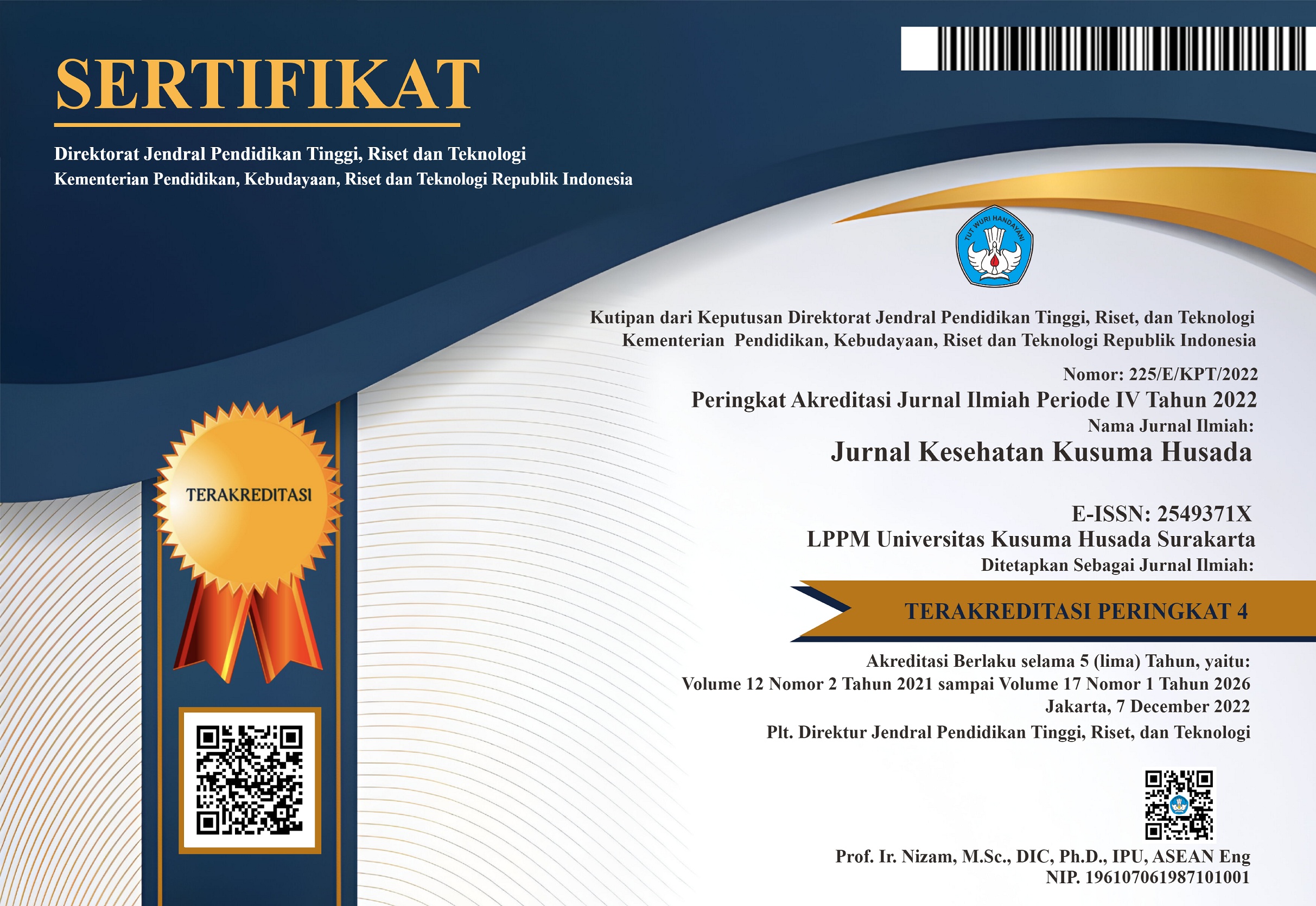ANALISIS GENDER DENGAN PERSPEKTIF SOSIAL EKONOMI MENGENAI KELUARGA BERENCANA DI DESA BOLON KECAMATAN COLOMADU KABUPATEN KARANGANYAR
Abstract
ABSTRAK
Keluarga Berencana (KB) merupakan sebuah isu penting yang relevan dengan masalah kependudukan dan kesehatan keluarga. Rendahnya partisipasi suami dalam ber-KB memberikan dampak negatif bagi kaum perempuan karena dalam kesehatan reproduksi tidak hanya kaum perempuan saja yang harus berperan aktif. Tujuan penelitian untuk menganalisis peran gender dalam perspektif sosial – ekonomi mengenai Keluarga Berencana (KB) di Desa Bolon Kecamatan Colomadu Kabupaten Karanganyar. Jenis penelitian adalah deskriptif kualitatif dengan pendekatan studi kasus dimana peneliti menggali informasi keikutsertaan Pasangan Usia Subur (PUS) dalam program KB yang dianalisis gender dengan perspektif sosial ekonomi. Subyek penelitian yaitu 6 PUS yang terbagi 3 kelompok. Hasil penelitian menunjukkan bahwa pengetahuan PUS dari informan 1 – 6 menunjukkan bahwa KB merupakan metode yang digunakan untuk mengatur jarak kehamilan. Sedangkan sikap positif mengenai KB ditunjukkan oleh informan 1 – 4. Pandangan informan dan masyarakat terkait KB juga sangat beragam, namun hampir kesemuanya sepakat bahwa KB dapat meningkatkan kesejahteraan ekonomi karena jarak anak yang diatur. Pasangan Usia Subur (PUS) di era modern, memiliki pengetahuan yang baik mengenai KB. Sedangkan sikap dan perilaku mereka sudah sadar gender yaitu pembagian peran baik akses dan kontrol dalam rumah tangga. Lingkungan sosial dan ekonomi menjadi pertimbangan PUS dalam mengikuti KB.
Kata Kunci: keluarga berencana, gender, pasangan usia subur, sosial, ekonomi
ABSTRACT
Family Planning (KB) is an important issue that is relevant to the issues of population and family health. Low husband’s participation in family planning have a negative impact for women because in reproductive health is not only women who should play an active role. The aim of research to analyze the role of gender in social perspective - economy on family planning (KB) in the village of Bolon Colomadu District of Karanganyar. The research methodology is descriptive qualitative case study approach where researchers gather information partner participation fertile age (EFA) in the program are analyzed gender with socio-economic perspective. The research subject is 6 EFA is divided into 3 groups. The results showed that the EFA knowledge of the informant 1-6 shows that family planning is the method used to adjust the spacing pregnancies. While the positive attitude shown by the informant about KB are 1 – 4 samples. The views of informants and the public on family planning is also very diverse, but almost all of them agree that family planning can increase the economic welfare of the child because the distance is set. Couples of fertile age (EFA) in the modern era, has a good knowledge about family planning. While attitudes and behavior that they are already aware of gender roles both access and control in the household. Social and economic environment into consideration for couples of childbearing age for the family planning program.
Keywords: family planning, gender, couples of childbearing age, social, economic
References
Downloads
Published
Issue
Section
License
The copyright of the published articles belongs to Jurnal Kesehatan Kusuma Husada.

This work is licensed under a Creative Commons Attribution 4.0 International License.
















